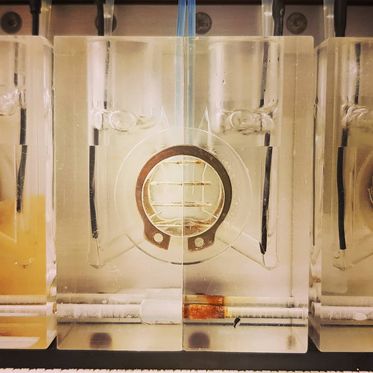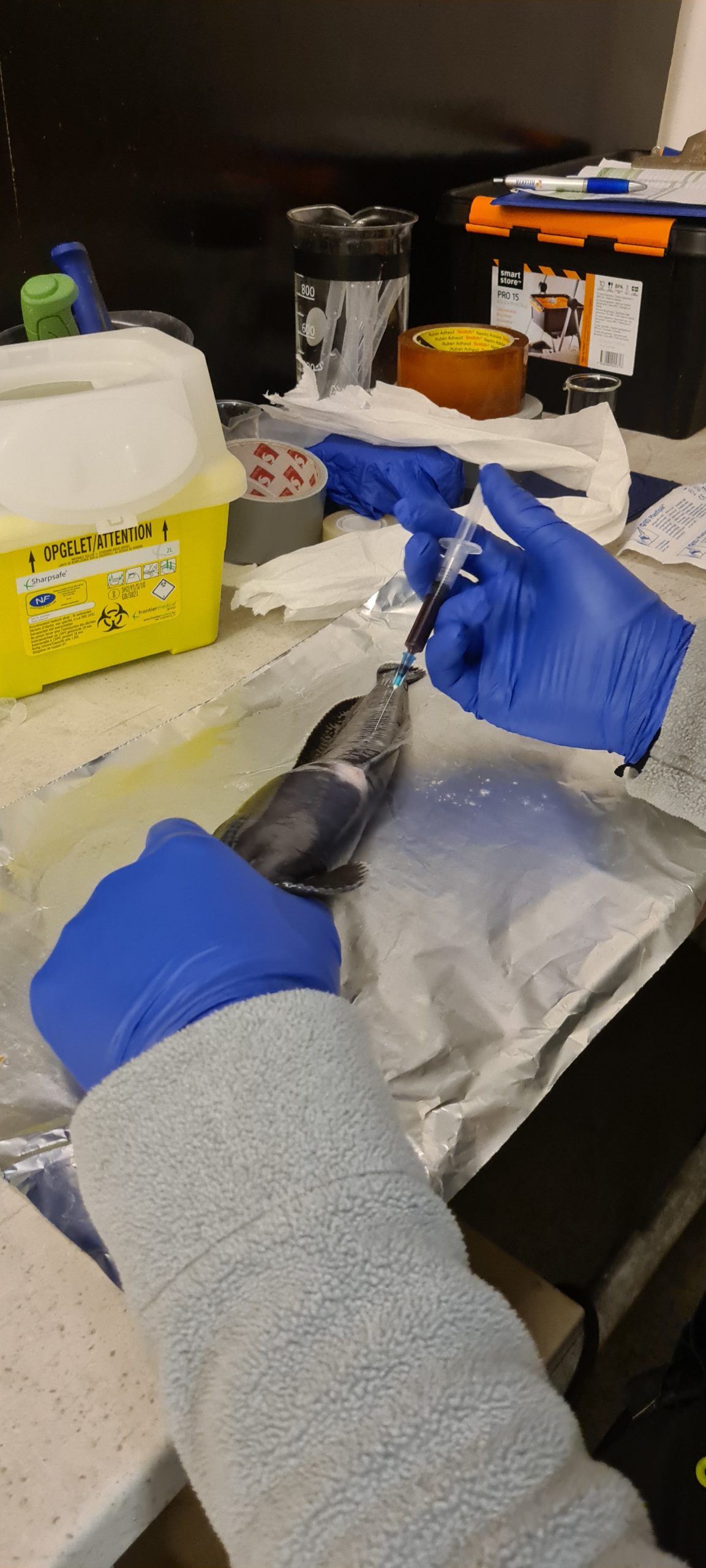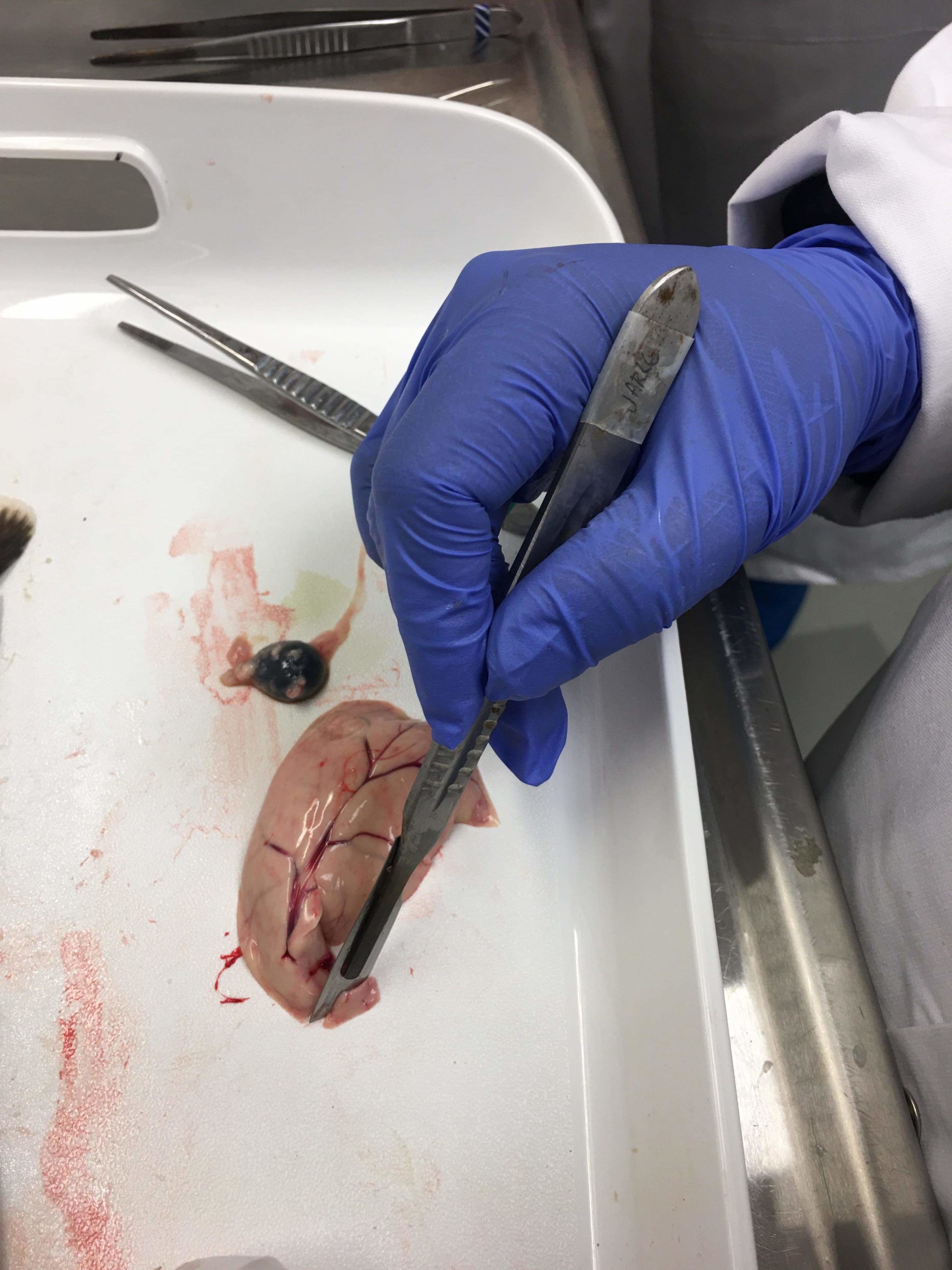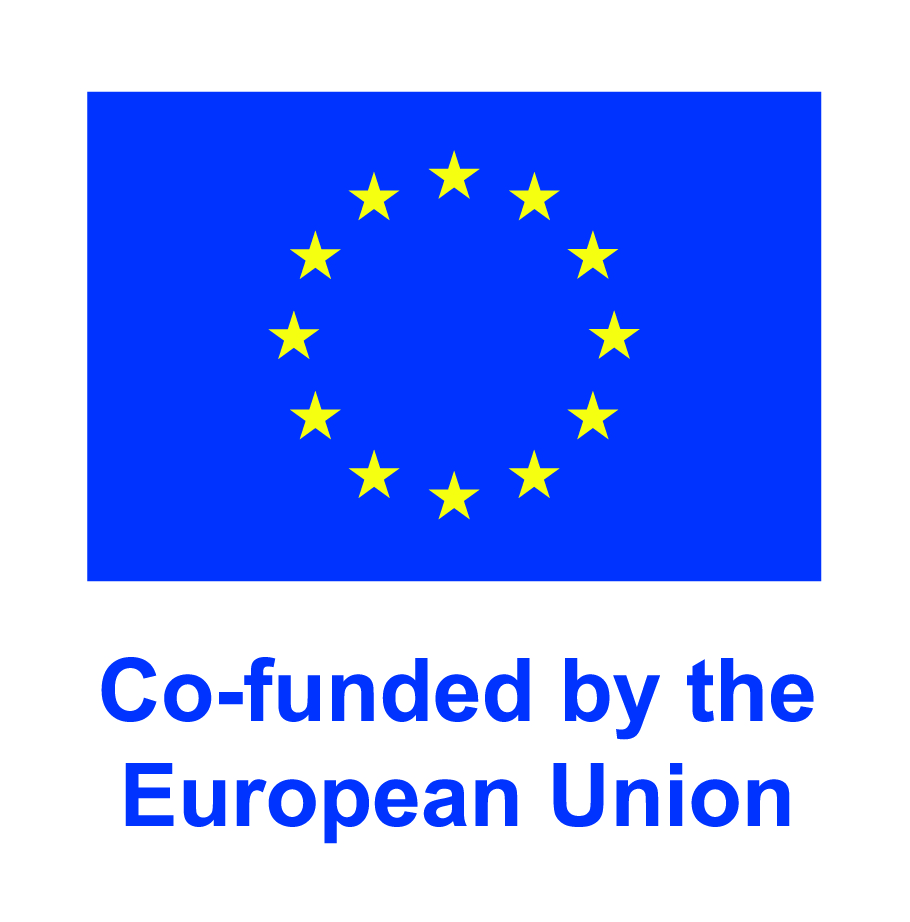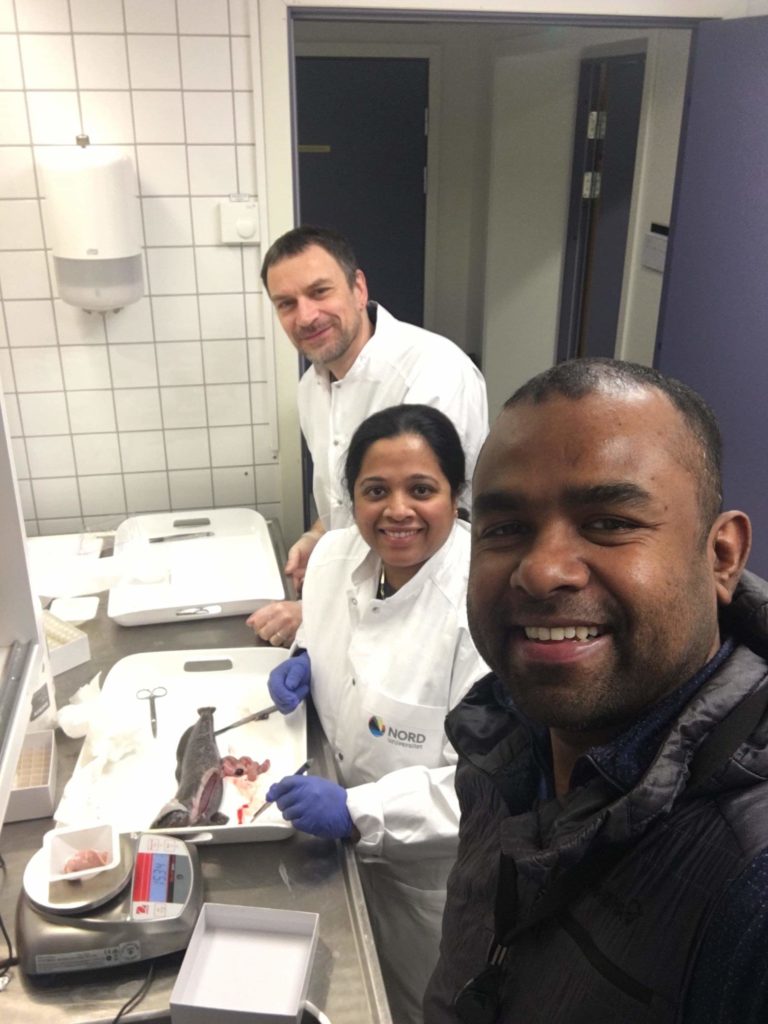Our Nord University research team has completed the first feeding trial on spotted wolffish. The team tested the efficacy of different diets with blue mussel meal; by feeding the fish from June 2020 to January 2021. Weight of the fish increased approximately five-fold during the experimental period. ARCTAQUA project partners from the University of Gothenburg were also able to join the final sampling despite having to go through 10 days of Covid-19 quarantine. The work on gut and kidney histology has already begun, and samples to study bone and teeth structures and detect kidney stones (if any) have been secured. Computerised tomography scan results are likely to provide insights into the deformities and disease signs in wolffish.
During the final sampling, University of Gothenburg brought in new methodology into the study; “Ussing chambers” allowed us to measure ion/nutrient transport and barrier functions across live epithelial cells. In this case, we were able to use the methodology to investigate the effect of diet on the intestinal function of spotted wolffish. We were interested in the sustainability of the diets and how/if they affected the health of the fish. By comparing the electrical impedance, we were able to determine if the diets positively or negatively affected vital biological functions such as nutrient transport, the ability to fight bacterial infections and how the animals can maintain their health status.
Here are some images of our sampling day activities:
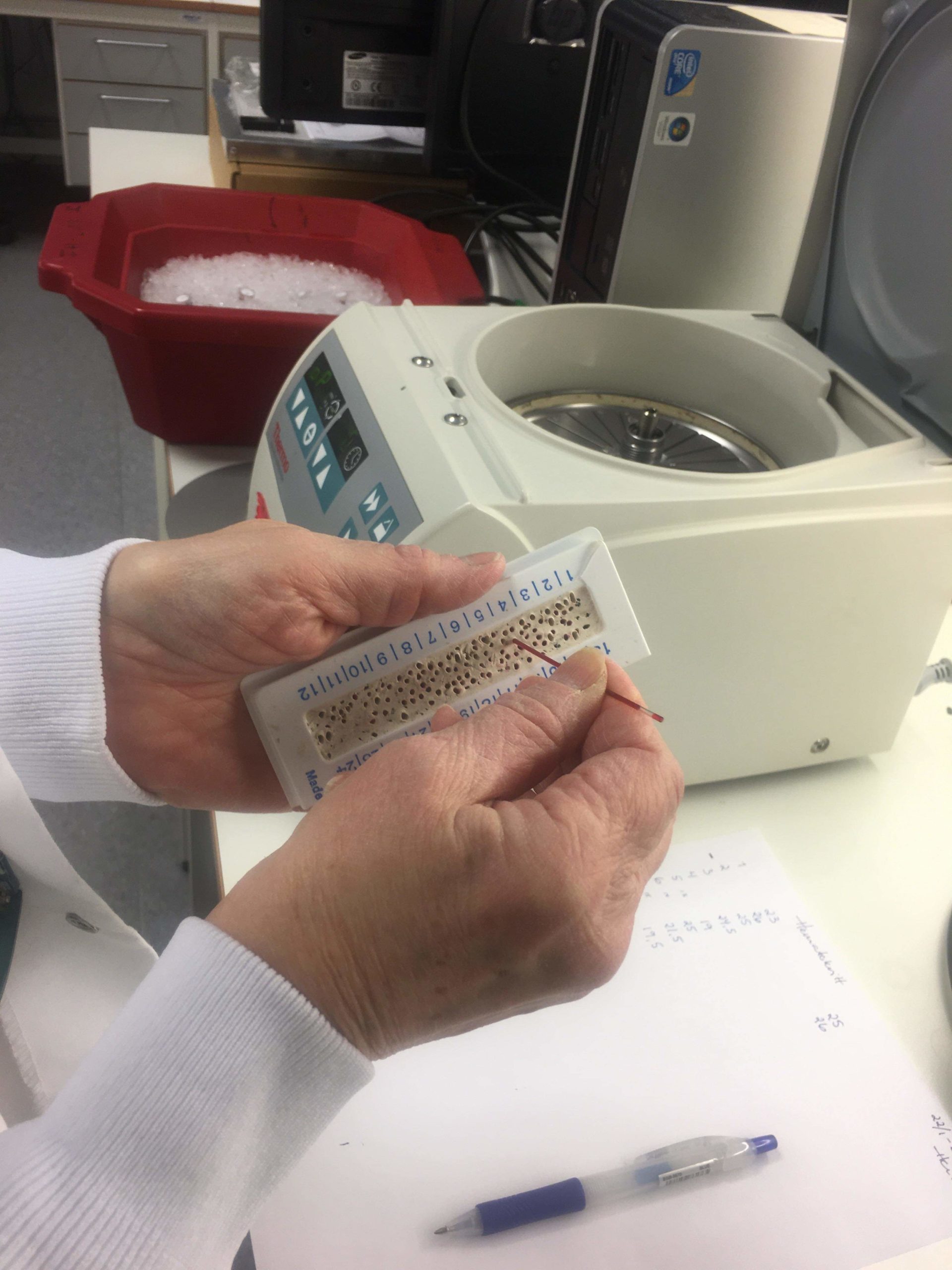 ‘
‘